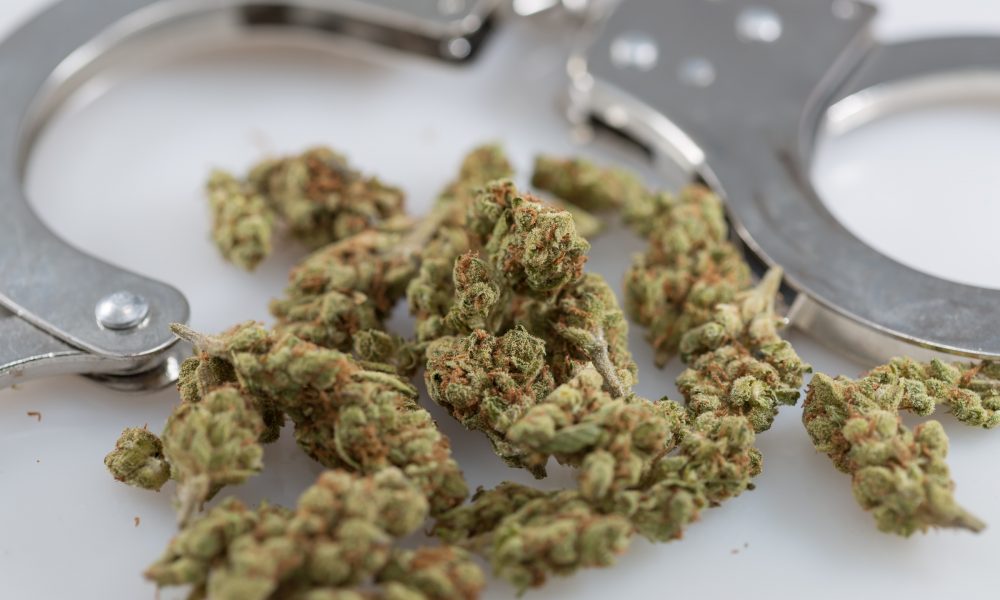A South Carolina lawmaker wants the state to celebrate 4/20 in a different kind of way in the years to come, filing a bill on Wednesday that would require officials to issue pardons for people with marijuana convictions on their records annually on the unofficial cannabis holiday.
Rep. JA Moore (D) introduced the legislation to create “420 Day” in the state. The measure would direct the state Department of Probation, Parole and Pardon Services to provide relief to at least 20 percent of those who’ve completed their sentence for simple marijuana possession every year on April 20.
Happy 420!
Today I filed H.7614, a bill to pardon 20% of South Carolinians convicted of simple marijuana possession on 4/20 every year.
Possession of marijuana is a nonviolent offense and it’s a crime that has been enforced unjustly since its inception. pic.twitter.com/RafEfKtZmW
— SC Representative JA Moore (@jamooreforsc15) April 20, 2022
The department could theoretically grant more cannabis pardons; it’s not clear why the sponsor set a 20 percent minimum beyond playing into the holiday, but he did say that proposal is meant to serve as a conversation-starter.
The text of the bill stipulates this proposal would only apply “to the pardoning of the offense of simple possession of marijuana and not to other unrelated convictions.”
“Possession of marijuana is a nonviolent offense and it’s a crime that has been enforced unjustly since its inception,” Moore said in a press release. “We need to force a conversation on this issue and that is the intention of my bill.”
The bill, H.7614, has been referred to the House Judiciary Committee.
Its introduction also comes as a Senate-passed medical cannabis legalization measure heads to the House floor after clearing a key committee.
That bill, S. 150, would allow patients with qualifying conditions to possess and purchase cannabis products from licensed dispensaries. Smokable products, as well as home cultivation of cannabis by patients or their caretakers, would be prohibited. Simply possessing the plant form of cannabis could be punished as a misdemeanor.
A recent poll found that three in four South Carolina Republican primary voters say they support legalizing medical marijuana.
Moore, the sponsor of the “420 Day” bill, is far from the only politician who marked the unofficial holiday this year. There were numerous examples of lawmakers and government agencies touting cannabis reform progress and calling for further action on Wednesday.
Also, a pair of Ohio Democratic lawmakers filed a bill on 4/20 that would legalize marijuana in a way that directly mirrors a proposed initiative that activists are pursuing for the ballot.
Back in South Carolina, Gov. Henry McMaster (R) said in February that it was too early to comment on the Senate-passed medical cannabis bill. It’s unclear how he’d address the new 4/20 messaging measure.
—
Marijuana Moment is already tracking more than 1,000 cannabis, psychedelics and drug policy bills in state legislatures and Congress this year. Patreon supporters pledging at least $25/month get access to our interactive maps, charts and hearing calendar so they don’t miss any developments.![]()
Learn more about our marijuana bill tracker and become a supporter on Patreon to get access.
—
Another poll released last February found that South Carolina voters support legalizing medical marijuana by a five-to-one ratio. But the state does not have a citizen-led initiative process that has empowered voters in other states to get the policy change enacted.
Also in 2018, 82 percent of voters in the state’s Democratic primary election voted in favor of medical cannabis legalization in a nonbinding ballot advisory vote.
Lawmakers prefiled four marijuana measures for the 2019 session, but they did not advance.
Separately, the state GOP organization have slammed a federal legalization bill from U.S. Rep. Nancy Mace, a Republican who represents South Carolina in Congress.
Schumer Makes ‘Promise’ On Marijuana Legalization Bill Timeline After Repeated Delays
Medical Disclaimer:
The information provided in these blog posts is intended for general informational and educational purposes only. It is not a substitute for professional medical advice, diagnosis, or treatment. Always seek the advice of your physician or other qualified healthcare provider with any questions you may have regarding a medical condition. The use of any information provided in these blog posts is solely at your own risk. The authors and the website do not recommend or endorse any specific products, treatments, or procedures mentioned. Reliance on any information in these blog posts is solely at your own discretion.







